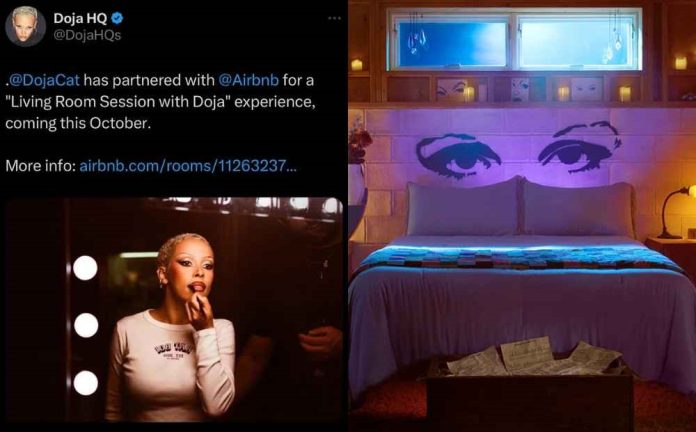Music tourism is rapidly evolving, with fans now seeking more than just concert tickets and festival passes—they want to fully immerse themselves in the music world. Platforms like Airbnb are capitalizing on this trend by offering exclusive stays at iconic music-related properties. These unique accommodations, ranging from homes where legendary musicians once lived to locations featured in famous music videos, are redefining fan culture and shaping the future of music tourism.
The Rise of Music-Related Airbnb Listings
In recent years, Airbnb has expanded beyond traditional vacation rentals and begun tapping into the music tourism market by offering fans the chance to stay at properties with significant musical history. Whether it’s Prince’s house from Purple Rain, Jimi Hendrix’s London flat, or Elvis Presley’s Palm Springs home, these listings offer fans a tangible connection to their favorite artists and albums.
This trend reflects a growing desire among fans for more personalized and immersive experiences. Music enthusiasts are no longer content with simply listening to songs or attending concerts—they want to step into the shoes of their idols, walking the same halls, breathing the same air, and, in some cases, sleeping in the same rooms as the legends they admire.
Driving Fan Engagement and Connection
Airbnb’s foray into music tourism has not only created new revenue streams for the platform but also deepened the connection between artists and fans. These music-centric stays offer an unparalleled level of intimacy and engagement. Fans who rent these properties often feel a closer bond with the music and the musicians, as they get to live in the environment that helped shape some of the most iconic moments in music history.
This direct fan-to-landmark connection has the potential to reshape how artists engage with their audiences. Instead of merely relying on social media or concert interactions, musicians and their estates can use these iconic properties to offer fans a more personal and exclusive way to experience their legacy. This engagement extends beyond passive consumption—fans become active participants in the narrative of their favorite music.
The Economic Impact of Music Tourism Through Airbnb
The economic implications of music-related Airbnb stays are vast. Cities with rich musical histories, such as Nashville, Memphis, and Liverpool, are seeing a significant boost in tourism thanks to these listings. Fans flock to these cities not just for the music festivals and live shows but also for the opportunity to stay at properties with deep historical and cultural significance.
For example, Prince’s Purple Rain house in Minneapolis became a hot Airbnb listing, offering 100 lucky fans a once-in-a-lifetime experience at just $7 a night—a nod to Prince’s favorite number. This kind of promotion drives tourism to the city, benefiting local businesses such as restaurants, shops, and transportation services. In turn, cities are recognizing the value of preserving these iconic properties as tourist attractions and cultural landmarks.
According to recent market research, the global music tourism market is projected to grow at a CAGR of 8.5% from 2023 to 2032, with platforms like Airbnb playing an increasingly pivotal role. As more properties with musical significance become available, the appeal of these experiences will likely continue to draw music enthusiasts from around the world.
Fan Culture: Nostalgia and Legacy Preservation
This rise in music-related Airbnb listings also signals a shift in fan culture. The opportunity to stay in an iconic music property appeals to a sense of nostalgia while contributing to the preservation of musical legacies. It’s not just about revisiting the past; it’s about keeping these stories alive in new and innovative ways.
For younger generations who may not have experienced the music firsthand, staying in these iconic properties offers a unique way to connect with the past. It bridges the gap between eras, allowing newer fans to engage with the music and culture that shaped previous generations. This creates a continuity of fan culture that spans decades, ensuring that the music and its legacy endure for years to come.
The Future of Music Tourism
The integration of platforms like Airbnb into music tourism suggests that the future of the industry will be increasingly immersive and experience-driven. As the demand for these unique stays continues to rise, we can expect more collaborations between platforms, music estates, and local tourism boards to offer exclusive, one-of-a-kind experiences that blend music, travel, and culture.
Furthermore, this trend may encourage artists to think more critically about their estates and how their legacy is preserved. Properties that were once just homes may become key parts of an artist’s brand, offering fans a deeper, more personal connection to their work.
Conclusion
Music Industry Weekly recognizes that Airbnb’s growing involvement in music tourism is transforming the way fans interact with the music they love. By offering stays at iconic music-related properties, the platform is providing fans with an immersive, intimate experience that goes beyond traditional tourism. This trend is not only driving economic growth in cities with rich musical histories but also fostering a deeper connection between artists and their audiences, ensuring that their legacies continue to thrive in a modern, experience-driven market.
